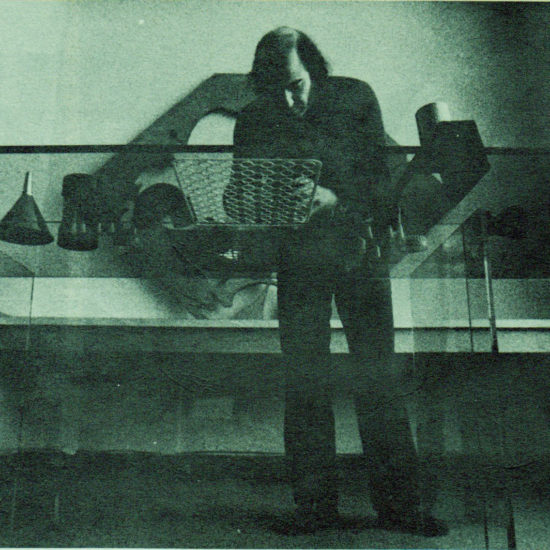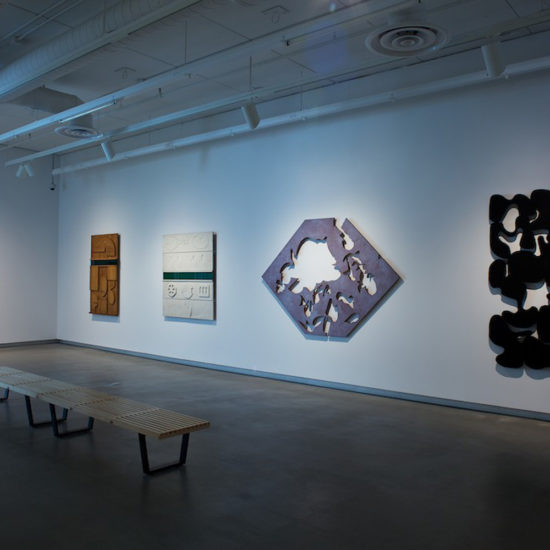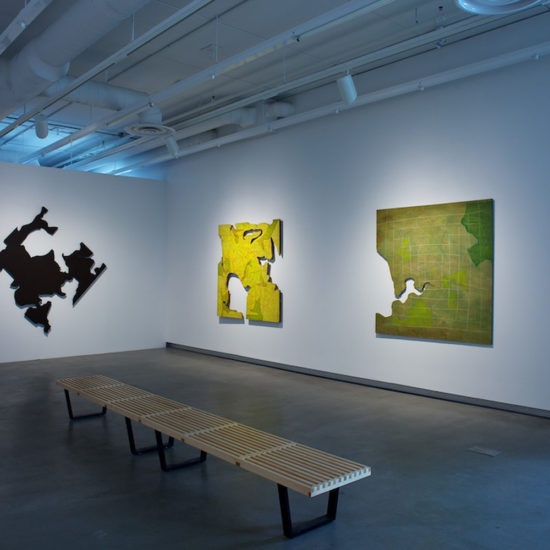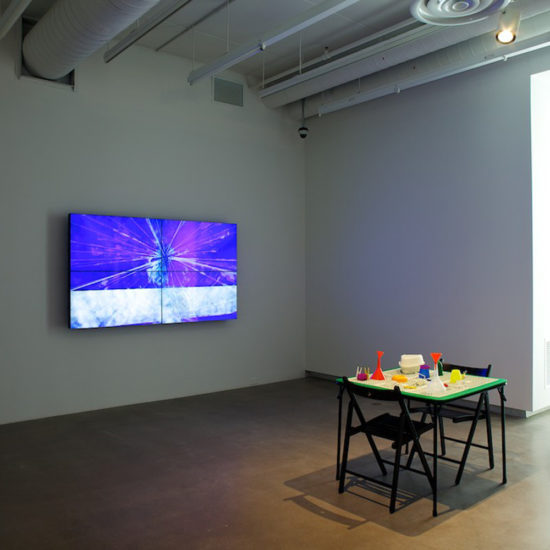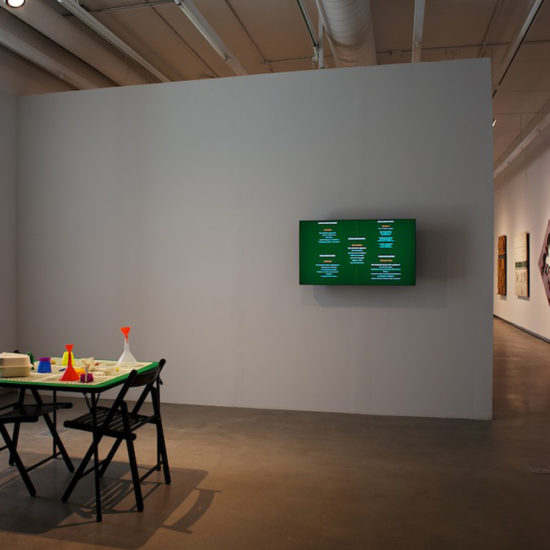Roy Ascott: The Analogues explores a small but crucial body of work by English inter-media artist and theorist Roy Ascott, and takes place in the context of Plug In ICA’s Summer Institute, an annual international artist’s residency. The works in the exhibition were largely created in England between 1963 and 1970. They form a small but crucial part of the artist’s “Analogue” works – non-digital, two-dimensional and non-representational wall works that pre-figure his later artwork and theories relating to computer networks, viewer interaction, and telematics. Ascott was the first to coin the term “telematic art” to describe the use of online computer networks as an art medium.
While Ascott has exhibited widely – Plug In ICA, in collaboration with Video Pool Media Arts Centre, is pleased to present these recently re-discovered Analogues for the first time in forty years.
The Analogues were stored near Toronto since Ascott departed that city in 1972, after a brief and tempestuous tenure as the President of the then Ontario College of Art (now OCAD University). Hired in 1971 by OCA, Ascott was poised to overhaul the college’s programs. His forward-looking ideas anticipated later developments in art pedagogy, but polarized the community, precipitating his hasty departure.
Ascott emerged in the United Kingdom in the 1960s as an innovative artist and educator (a student of Victor Pasmore and Richard Hamilton). Ascott developed his radical art pedagogy in the form of the Groundcourse at art schools in London (Ealing) and Ipswich Civic College, Suffolk. His innovations helped foster a generation of artists, with former students including Stephen Willats, Brian Eno and Pete Townshend.
Ascott first went online in 1978, almost two decades before the Internet was popularly available. This encounter turned his attention from making art objects per se to organizing his first international artists’ computer-conferencing project, “Terminal Art,” in 1980.
The Analogues were created during the period between his initial contact with cybernetic theory and his first digitally-networked experiences online. Consequently, the Analogues form an indexical moment through which we may better understand Ascott’s impact on art, new media theory and education. As we can see in these works, Ascott anticipated the concept of “interactivity” in art, and his radical Groundcourse in art education positioned the importance of education in artistic practice, especially notable in relation to the educational turn in contemporary art.
Ascott will be a visiting artist and lecturer at the Summer Institute. Participating faculty and artists in this year’s Institute also include: Ken Gregory, Oliver Botar, Eduardo Kac, Candice Davies, Ray Fenwick, Nikki Forrest, Thea Jones, Jean Klimack, Erika Lincoln, Freya Bjorg Olafson, Juan Ortiz-Apuy, Victoria Scott, Matthew Walker, Mitchell Wiebe and Aaron Weldon.
A publication Roy Ascott: The Analogues will be published by Plug In Editions, with an essay by Anthony Kiendl and an interview with Ascott by Dr. Melentie Pandilovski, Director of Video Pool Media Arts Centre, Winnipeg.
Roy Ascott was born in 1934 in Bath, England. He has shown at the Venice Biennale, Milan Triennale, Biennale do Mercosul Brazil, European Media Festival, and Musée d’Art Moderne, Paris, among others. His retrospective The Syncretic Sense was shown at Plymouth Arts Centre UK, 2009; at the Incheon International Digital Art Festival, Korea, 2010, and at SPACE, Hackney, London, 2011. Roy Ascott: Syncretic Cybernetics was part of the Shanghai Biennale 2012. He is Founding President of the Planetary Collegium (World Universities Forum Award for Best Practice in Higher Education 2011), and the DeTao Master of Technoetic Arts at the Beijing DeTao Masters Academy in Shanghai; Honorary Professor of Aalborg University, Copenhagen, and University of West London.
Plug In ICA and Video Pools Arts Centre gratefully acknowledge the support of the Canada Council for the Arts, the Manitoba Arts Council and Winnipeg Arts Council as well as Donors, members and volunteers.



